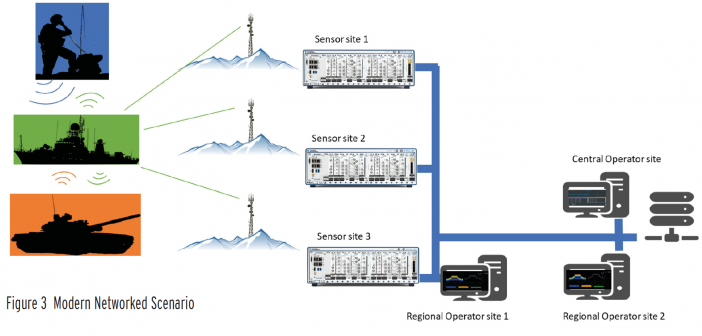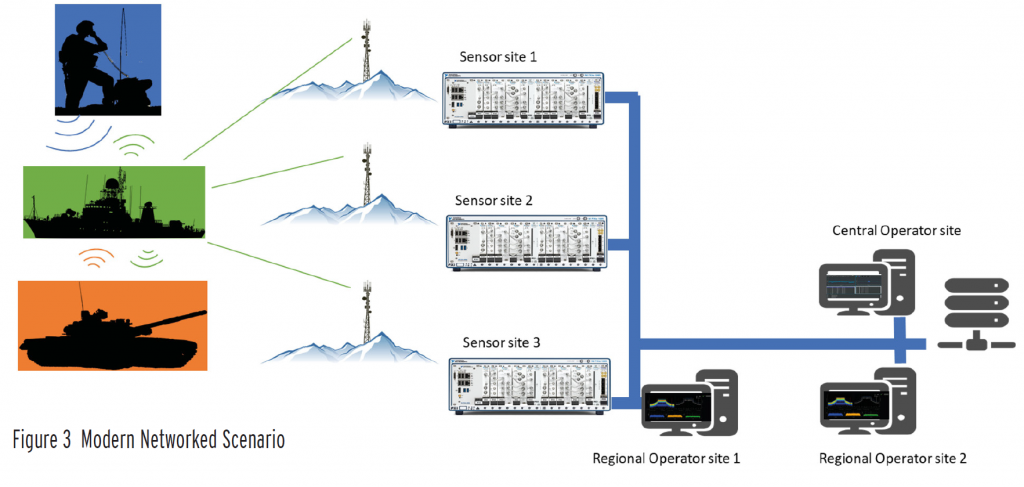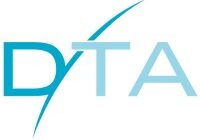In strategic communication intelligence scenarios one of the main tasks is to gather as much information as possible. Ideally the cost should be proportional to the value the gathered information provides. In reality, it is nearly impossible to value the information at the time it is gathered. Information might become valuable first after two or three Years. Therefore, the cost is typically bound by given budgets.
Today, we see a continuously growing number of communication signals in the spectrum. At the same time wireless communication standards are increasingly diverse. More and more information has to be acquired and processed while the budgets typically don’t increase proportional to the increased amount of gathered information.
Using conventional methods for strategic communication surveillance would increase the cost almost proportionally to the growing amount of communication signals. New cost efficient solutions are needed which effectively acquire, monitor, and process communication signals.
In the following section we explore how networked multichannel radio systems reduce both capital and operating expenses (CAPEX & OPEX).
Multichannel Radio Systems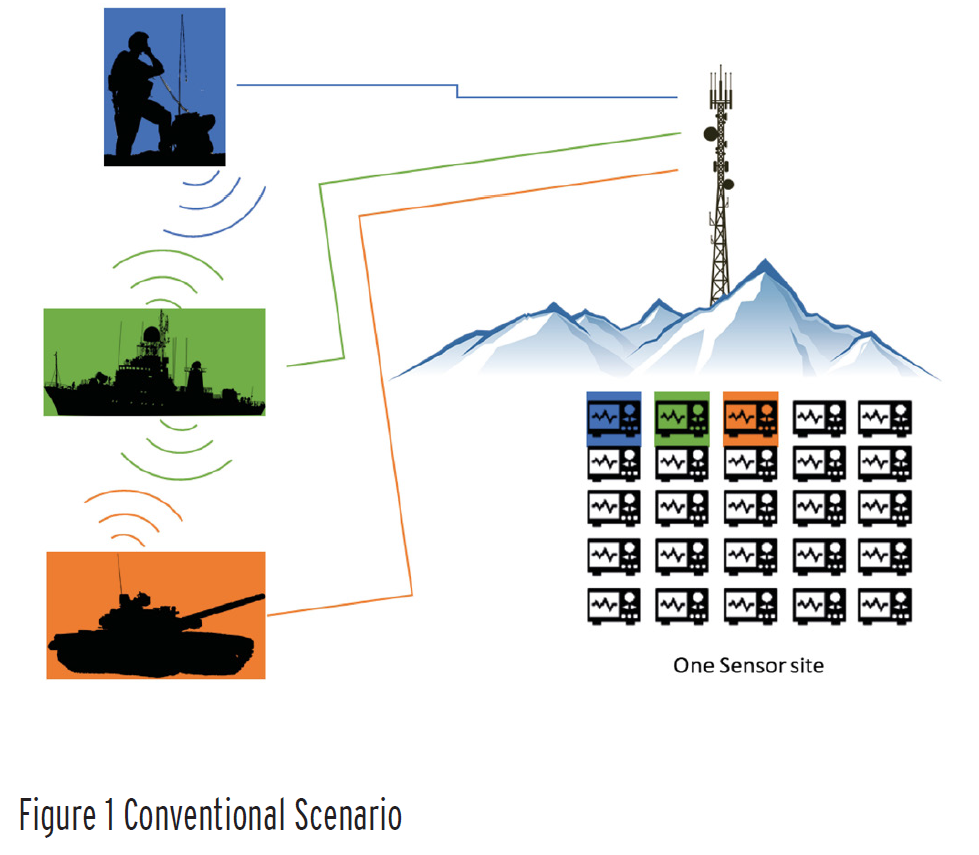
Conventional methods typically required one analog narrowband receiver for one signal. With the increasing number of signals this not only increases the capital expenses proportionally to the number of signals, but it requires a lot of physical space, too. Maintaining the aging equipment including repair and obsolescence management becomes more & more costly.
Replacing analog receivers with software defined receivers is becoming increasingly common. Today modern receivers can handle 8, 16 or more individual narrowband signals. Most receivers which can handle hundreds of narrowband signals provide reduced flexibility in configuring the individual signals. E.g. all signals have to be equally spaced.
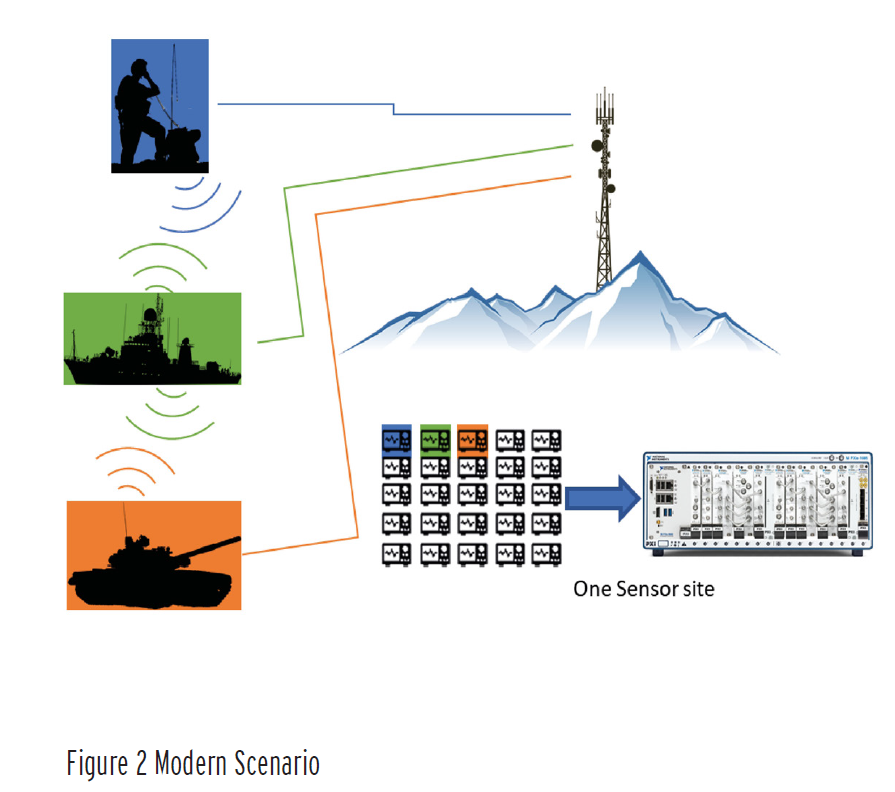
Novator Solutions has partnered with RFEL to provide a modern software defined receiver solution which can handle a record number of 1024 narrowband signals with a single receiver. The digital downconverter, DDC, implementation allows to configure all important channel parameters, such as center frequency, gain or bandwidth, individually. This implementation enables COMINT Operators to be generous with listening and recording signals which might be of interest or not without loosing important COMINT information.
The solution is built on the proven modular PXI platform which is the foundation for providing scalable monitoring capacity. Thanks to the chosen modular hardware design and the vast amount of DDC channels it has a small footprint per channel and an overall low cost per channel ratio. The COTS pro-ducts ensure both short delivery times and high availability of spare parts.
Networked Sensors
To get optimal reception and to cover large geographical areas multichannel radio systems are installed at various remote locations. Some of the locations can be difficult to reach due to challenging terrains or it simply takes rather long to get to a remote location.
It is important that multichannel radio systems can not only be used independently as single sensor systems-but that they are fully network-enabled with remote control and allow multi-user operation. The increasing amount of communication signals puts higher requirements on reducing the amount of data locally before it is send to a regional or the central operation center without losing essential information.
High Flexibility
Novator Solutions multichannel radio systems can be used as a single sensor system and are optimized for operation as networked sensors. The data reduction down to 1024 narrowband signals and analogue modulation all in real-time at the sensor site ensures remote access to the communication signals without putting too much constrains on the network requirements and budget.
Collecting time-synchronized data from multiple remote sensor locations enables the operators and automated communication monitoring systems like SANDRA from Combitech to perform advanced tasks by correlating data in real-time. The monitoring system can for example locate emitters with the help of TDOA based direction finding. Another example is that senior operators with expert knowledge can get access to data from different sensor sites to perform advanced analysis to get a deeper understanding of the communication signal or emitter.
Remote access further reduces the operational cost. Many operational & maintenance tasks like system configuration, control & software management can be handled without the need of going physically to the location. The increased flexibility helps optimizing the available resources. Operators located at different remote centers can simultaneously access communication signals from the same networked sensor.
Summary
Novator Solutions’ approach with the modular design paired with the capability to handle a record number of 1024 narrowband channels with a single receiver helps to keep the capital expenses under control. Having access to so many individually configurable DDCs gives the operator another level of freedom to be lavish with the available channels capturing both more & less obvious communication signals. The networked sensor ready operation is a requirement to keep the operational expenses at a stable level.
By Carsten Watolla, Department Manager Spectral Data Analysis “SDA”

